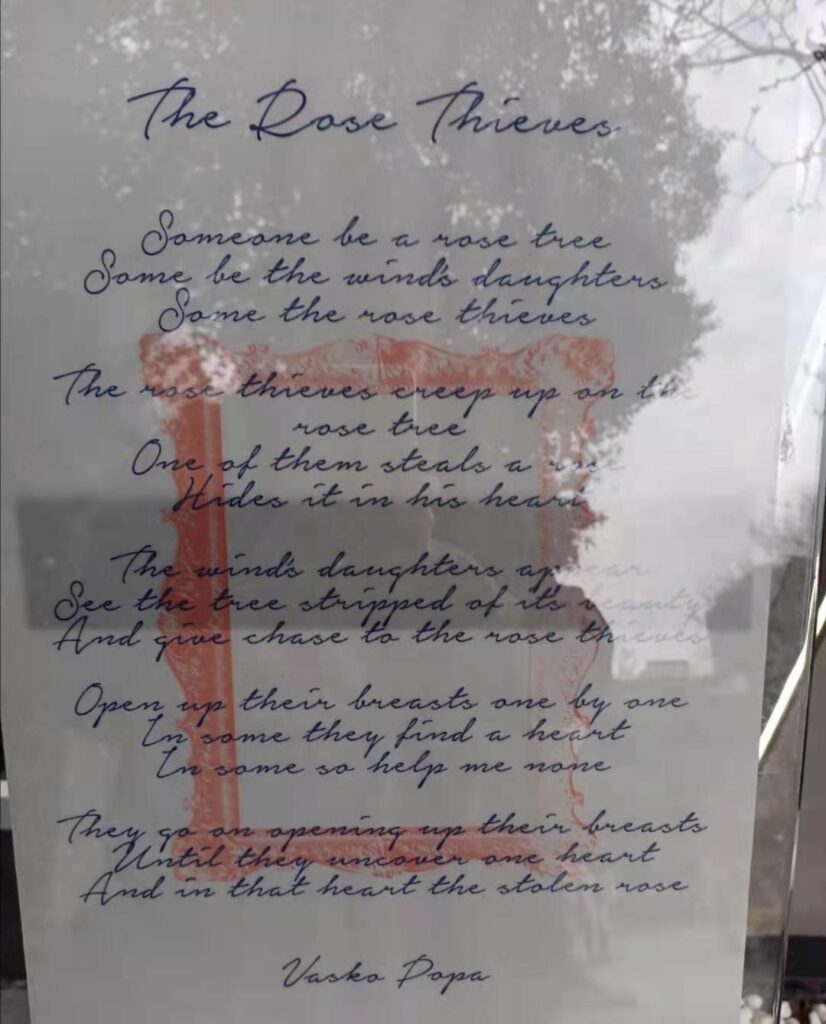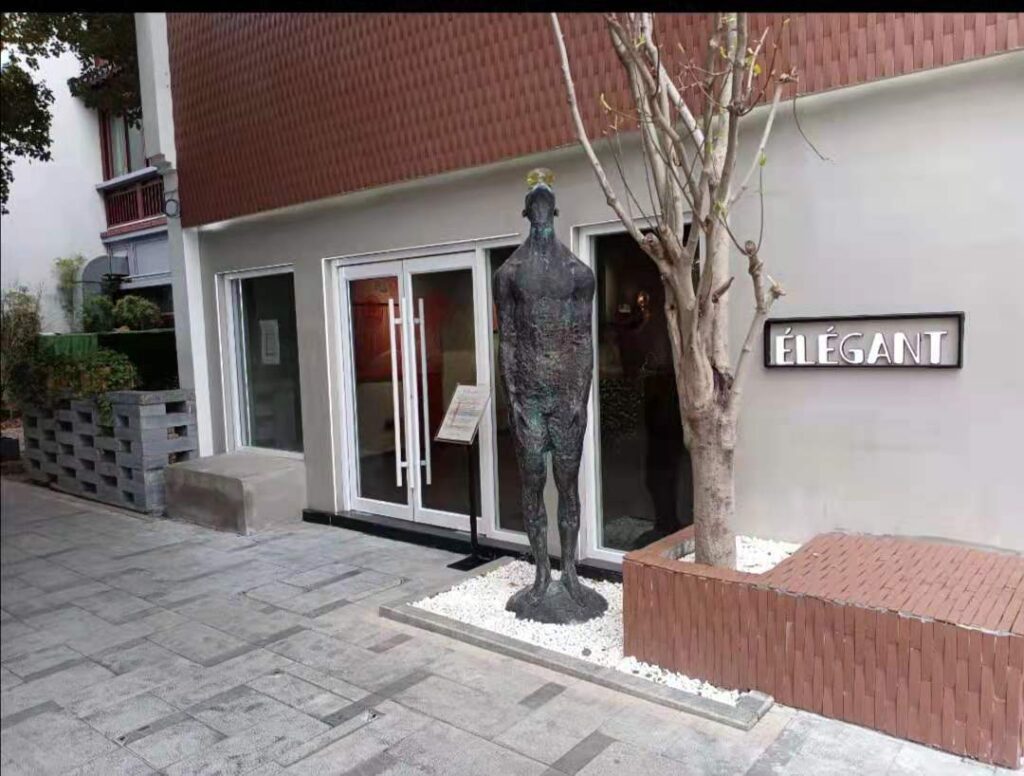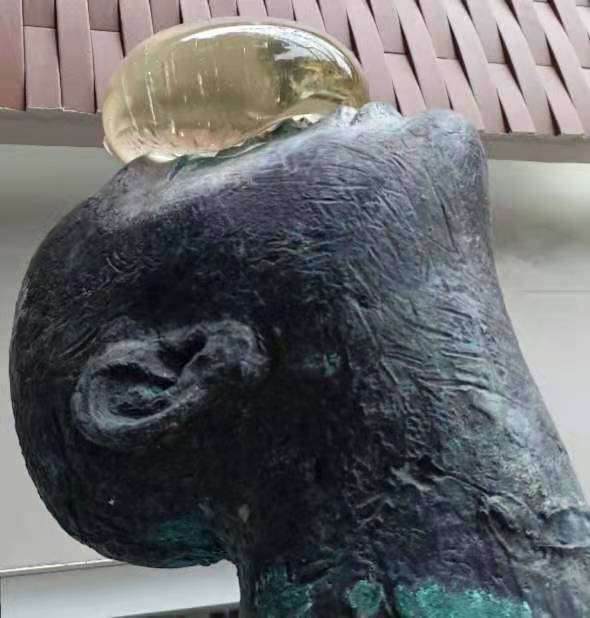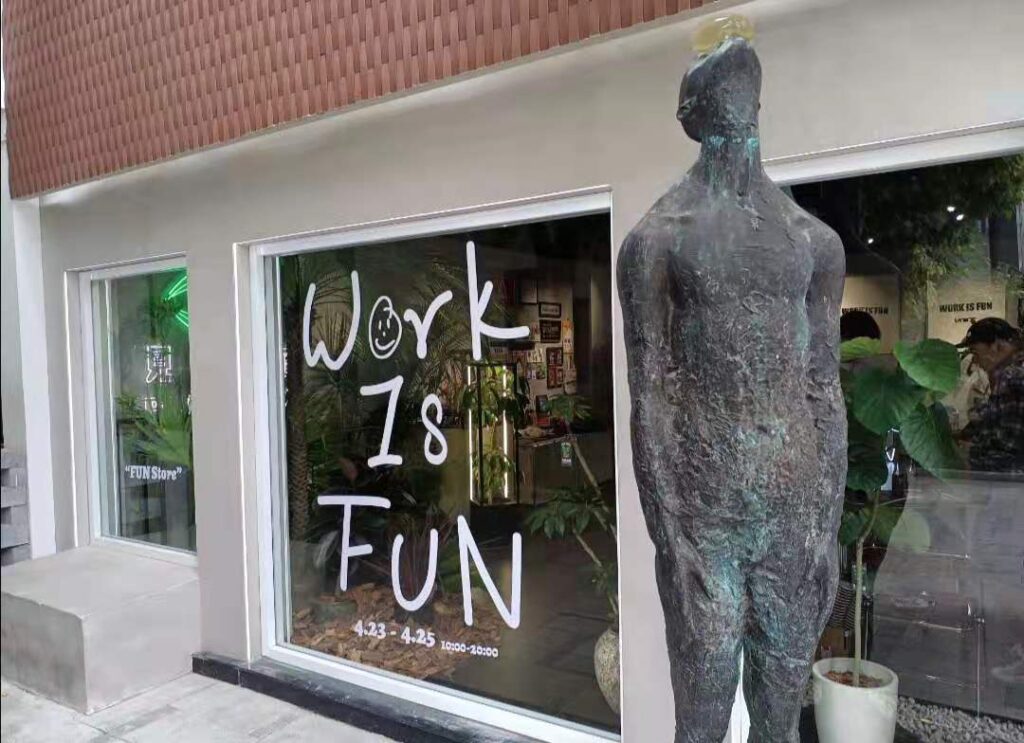Someone be a rose tree
Some be the wind’s daughters
Some the rose thieves
The rose thieves creep up on the rose tree
One of them steals a rose
Hides it in his heart
The wind’s daughters appear
See the tree stripped of its beauty
And give chase to the rose thieves
Open up their breasts one by one
In some they find a heart
In some so help me none
They go on opening up their breasts
Until they uncover one heart
And in that heart the stolen rose
–Vasko Popa
These are the lines of “The Rose Thieves,” a poem I have found perplexing for a while. It’s cryptic, but one might usually argue that poetry is cryptic by nature. Yet, Vasko Popa — a luminary within Serbian verse — had a penchant for purposefully trying to misdirect his reader. For example, he poem “Horse,” one of his more famous pieces translated into English, famously starts with “It has eight legs.” The combination of that and the title leads to a rather surreal of an eight legged horse. If you could look hard enough, though, one could argue that the title is referencing a spider. My problem with “The Rose Thieves” is I’m trying to figure out what the “thieves” actually are, and that is a mistake. There are no skeleton keys for unlocking a good bit of verse. Each should poem should be considered its ownspecial puzzle box.
When it comes to Popa, “The Rose Thieves” was one of his works that I had never read before. I found it in Nanjing, of all places.

This was posted outside of a café and art gallery in the China Lane complex. This is near the Confucian Temple. China Lane is basically a collection of restaurants, galleries, and boutique shops dressed up in the architecture of Chinese antiquity. The Gan Xi Former Residence is also here as a historical attraction. However, back to the poem; Elegant, I believe, is the name of the gallery in question.

As challenging as Popa’s poem is, it’s next an equally perplexing statue. It’s a figure standing with a rigid posture with his head tilted towards the heavens. There is also a curious thing sitting on this figure’s face.

What on earth is on this man’s mouth, nose and eyes? Could it be some sort of space amoeba trying to force its way past the guy’s lips and down his throat? Um, no. Amoebas don’t operate that way. They stretch out pseudopods around something like a sinister hug and draw their food towards them. They ingest by absorbing their prey directly into their body. So, no, amoebas are definitely out. It could be an intergalactic gelatinous blob trying to find an entry point — via the mouth — to ultimately gain parasitic control over a human host. But, why does everything have to be sinister? Maybe that gelatinous blob is just an extra terrestrial pet that’s giving his man-friend an affectionate kiss?
What on earth does this have to do with Vasko Popa’s poetry? None, actually. Except, the poetry was posted next to the statue. Give me time, a lot of alcohol, and cigarettes, and I likely could conflate an answer. But, I’m not going to do it here. The truth is, the statue is a permanent fixture in this part of Nanjing. “The Rose Thieves” poem, however, was not.

Essentially, the poem was linked to a gallery exhibit dedicated to painting of roses. Since the public display of verse is quite a thing in China, it’s likely that one of the gallery employees searched the English Internet for rose-themed pieces. So, even though there is no obvious linkage between the two, it still interesting how they parallel each other, even if accidentally and temporarily. One day, I went back to see the actual art exhibit, but the paintings had already been taken down and replaced with a new themed display.
